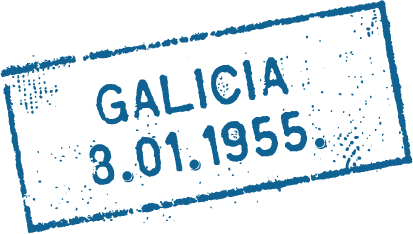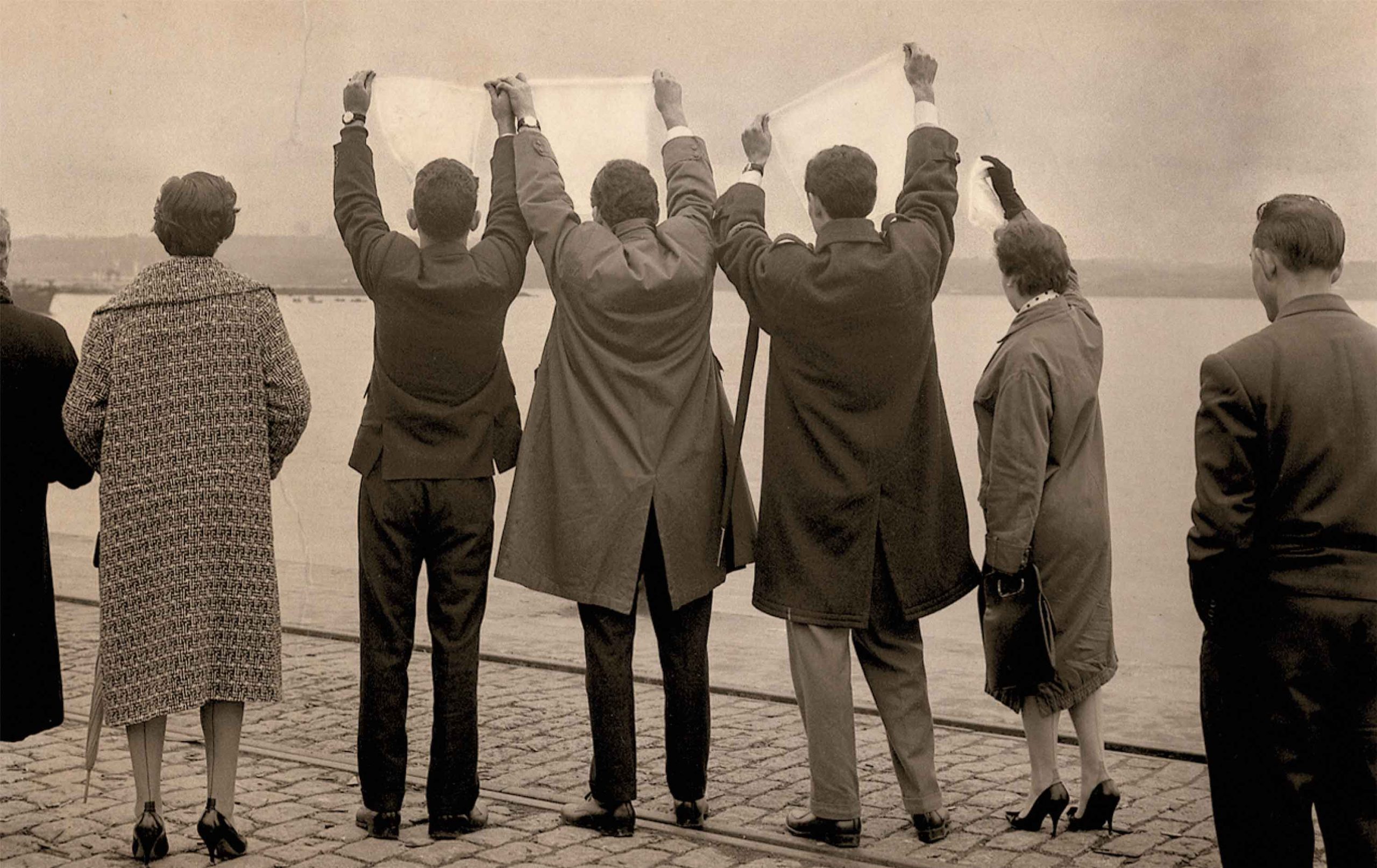
RAMÓN DO CASAR
VARIETAL
Our roots lie in a history of personal
and collective achievement. A lasting memory
and inspiration that speaks to us of hard work,
family and love for the land.
Keeping the memory of emigration
alive will always help us to understand
our own identity.
Our roots lie in a history of personal and collective achievement. A lasting memory and inspiration that speaks to us of hard work, family and love for the land.
Keeping the memory of emigration alive will always help us to understand our own identity.
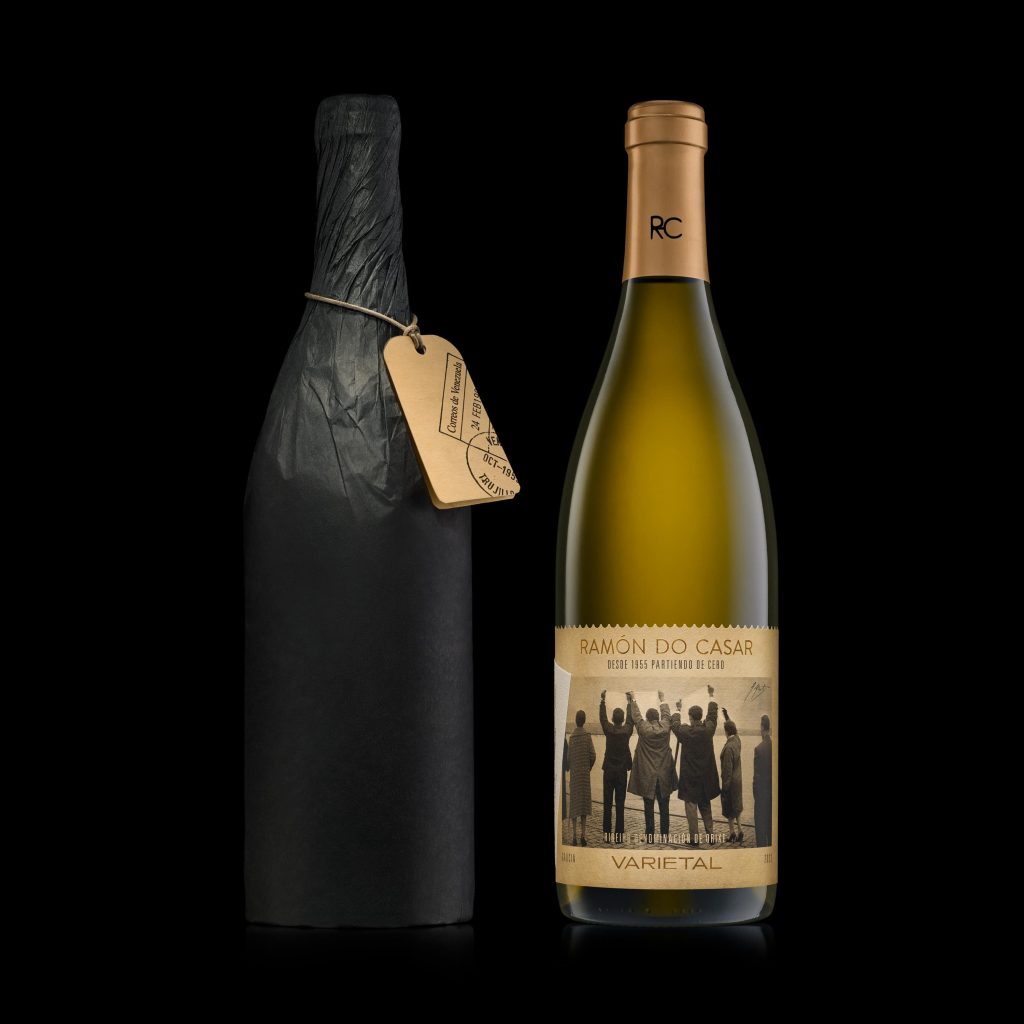
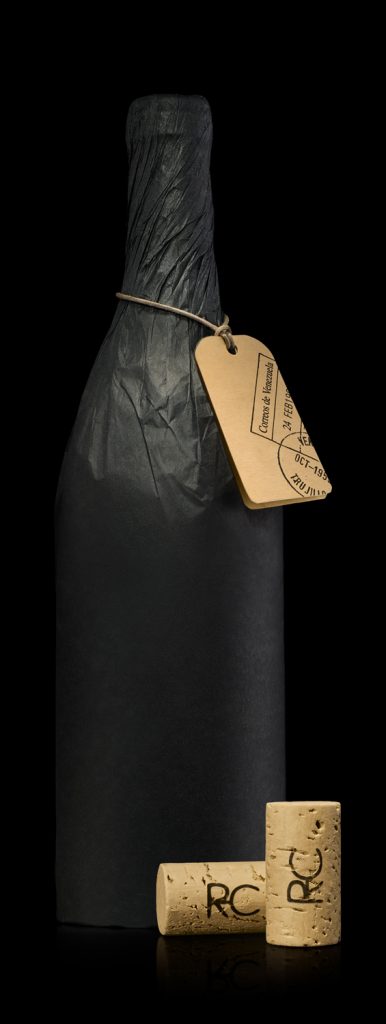
‘23/
Brand: Ramón do Casar Varietal.
Edition: 125.000 bottles.
Winemaker: Pablo Estévez.
Vintage: 2023.
Designation: D.O. Ribeiro.
Local varieties: Treixadura, albariño and godello.
Fermentation and ageing in stainless steel. Vineyards in an exceptional setting.
ABV: 12,5º
Soil: Sandy loam.
The winemaking process
Grapes selected by hand in early September. Must extracted by gentle pressing and a light maceration. After two days of static clarification by cold settling, fermentation begins in stainless steel vats at controlled temperatures, for 12-14 days.
Once this is complete, the wines are drawn off into new stainless steel vats, where they remain for 2-3 months on their own lees.
The phase of blending the treixadura, albariño and godello grape varieties begins in February. A week later, it is clarified, and towards the end of February the process ends with filtering and bottling of the wine. It is laid down for a month in the winery before, with the winemaker’s approval, going onto the market.
The winemaking process
Grapes selected by hand in early September. Must extracted by gentle pressing and a light maceration. After two days of static clarification by cold settling, fermentation begins in stainless steel vats at controlled temperatures, for 12-14 days.
Once this is complete, the wines are drawn off into new stainless steel vats, where they remain for 2-3 months on their own lees.
The phase of blending the treixadura, albariño and godello grape varieties begins in February. A week later, it is clarified, and towards the end of February the process ends with filtering and bottling of the wine. It is laid down for a month in the winery before, with the winemaker’s approval, going onto the market.
Visual stage
Clean and bright, straw yellow in colour with greenish glints.
Olfactive stage
Intense, complex and highly elegant aroma. Fruity notes of white rose and lime flower. It has a strong “typicity”, or varietal character.
Gustative stage
Very pleasant in the mouth, mellow, well-balanced, long and with the right crispness to leave a long fruity aftertaste.
Visual stage:
Clean and bright, straw yellow in colour with greenish glints.
Olfactive stage:
Intense, complex and highly elegant aroma. Fruity notes of white rose and lime flower. It has a strong “typicity”, or varietal character.
Gustative stage:
Very pleasant in the mouth, mellow, well-balanced, long and with the right crispness to leave a long fruity aftertaste.
The path taken by our coupage
of treixadura, albariño and godello
has always been cause for satisfaction
for the winery.

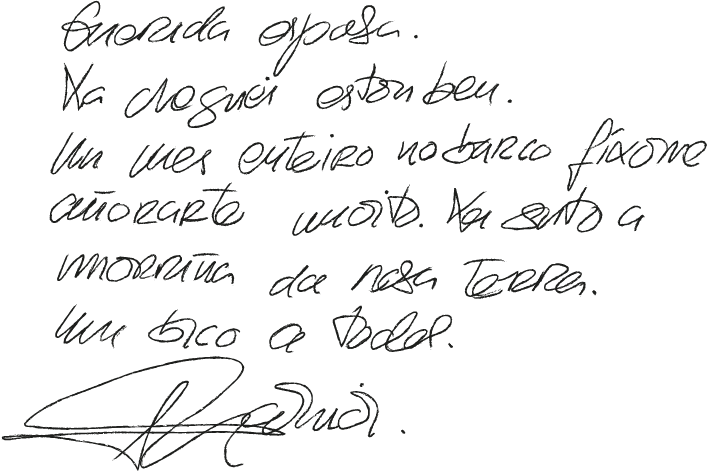
V
The path taken by our coupage
of treixadura, albariño and godello
has always been cause for
satisfaction for the winery.


